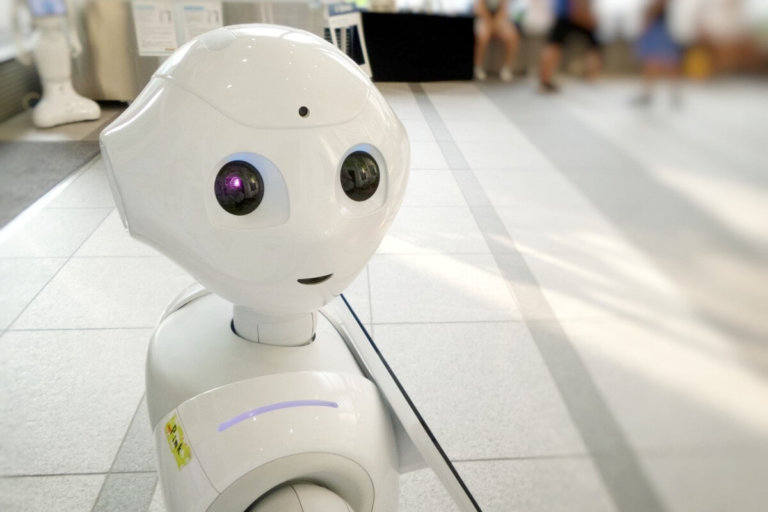
Artificial intelligence (AI) is rewiring just about every aspect of modern life; from the banking and finance industry to education, healthcare, and beyond. AI is the force behind many of Google’s products, while closer to home, digital voice assistants like Apple’s Siri, which we can carry around in our pockets, or Amazon’s Alexa in our homes, are some of examples of innovative AI devices at work.
The technology may still be evolving, but various industries are under increasing pressure to adopt and invest in AI as the technology presents a wealth of value in a business sense. AI also has the ability to enhance the world we live in, but the skills gap threatens to stunt its growth.
Recruiters and would-be employers say the limited pool of AI-trained candidates has slowed hiring and impeded growth in some companies, while reports suggest it can delay broader adoption of the technology and see certain markets develop quicker than others.
While companies are on the prowl for talent, global demand currently exceeds supply, with many tech giants scooping talent from university grounds.
Democratising AI and grooming talent in the field

Individuals from developing countries need the right resources and opportunities to become AI professionals. Source: Alex Knight/Unsplash
In an effort to create a skilled AI workforce in underserved communities, Sameer Maskey has founded two AI schools in Nepal and the Dominican Republic through Fusemachines, a New York City-based AI solutions and services provider.
While both countries serve as interesting choices to set up their Fusemachines AI Schools, the company founder and CEO said via an email interview that he has seen equivalent talent in underserved communities like Nepal in his role as an educator at Columbia University, but said the resources and opportunities there are “relatively non-existent”.
“Given the right opportunity to the right talent, we can reduce the [skills] gap in the AI talent market,” said the 41-year-old Nepali.
“That’s why we started the Columbia Micromasters AI Fellowship programme in Nepal and the Dominican Republic in 2017 and realised how much it helped create a skilled workforce. To scale this initiative, we launched Fusemachines AI Schools with our own curriculum that focuses on Introduction to Computer Science and Mathematics for AI, Machine Learning, Deep Learning, Computer Vision and Natural Language Processing.”
Addressing the AI skills gap with microdegrees

Can microdegrees help to address the AI skills gap? Source: Shutterstock
Fusemachines’ website notes that their AI schools train students through a mix of online and on-site training. Their online learning platform provides content prepared by industry experts and university professors, and is supplemented by on-site instruction at the school.
The Fusemachines AI initiative started in 2017, with 25 students being offered full scholarships to complete the one-year Columbia Artificial Intelligence MicroMasters® programme. To date, Maskey said they’ve had hundreds of students enrolled in the programme, primarily from Nepal, the Dominican Republic, Rwanda and Burkina Faso.
“There have been hundreds of applicants, but we are highly selective and have chosen a smaller number,” he explained.
Fusemachines’ AI School is not an accredited educational institution and does not confer any degrees. Despite that, students of the programme have gone on to pursue PhDs in AI-related programmes and joined companies with AI teams in their home countries, as well as the US.
“IBM and Apple are some of the notable companies that students from our programme have gone on to work for,” said Maskey, who received his PhD in computer science from Columbia University.
There are appeals to pursuing a microdegree, some of which include the flexibility they give to working adults, the fact that they’re faster to complete as they consist of short modules, in addition to costing less than traditional degrees.
So, while such credentials are gaining steam among working adults, are they the way forward for the future of work, or for the gig economy?
“I believe microdegree or non-degree programmes are becoming more popular and needed in today’s changing workforce. These programmes will continue to play a bigger role in the days to come. However, I don’t think they will completely replace traditional programmes. There is a space for both types of education to exist,” he opined.
As for the company’s future plans, Maskey said they aim to train 10,000 AI engineers in five years and open franchise schools worldwide, most notably in underserved communities. This will be accelerated through various partnerships with colleges to run the AI Schools.
“The engineers from underserved communities have tremendous talent and drive. If we can provide them with the right opportunities and resources, they can be enabled to work for clients all around the world,” he said.
Liked this? Then you’ll love…
Will AI’s development be hindered by a talent shortage in academia?
The robots are coming: Here’s how AI is being used in the K12 classroom







